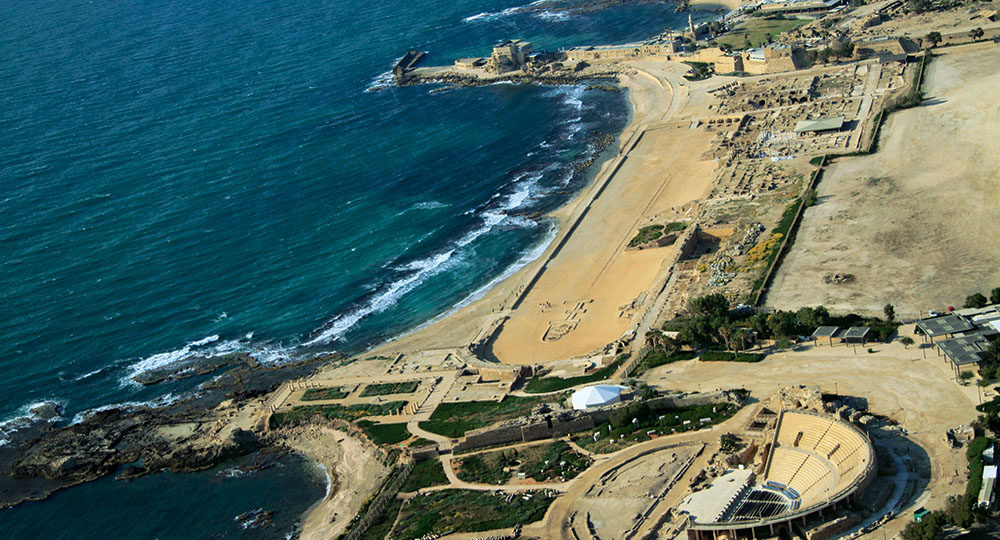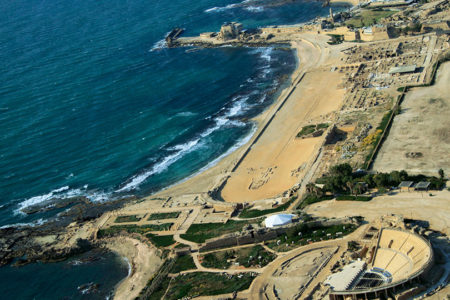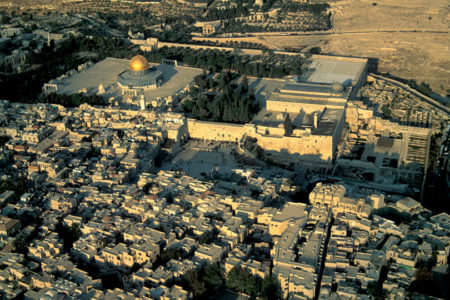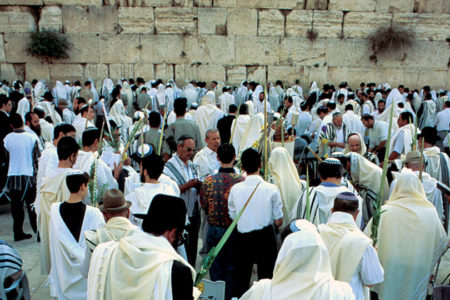Caesarea Maritime
Caesarea is located on the Mediterranean coast between Haifa and Tel Aviv and was originally a Phoenician trading post called Strato’s Tower (c. 250 BC). In 25 BC Herod the Great built a large city and harbor there and renamed the site Caesarea after Caesar Augustus.
Caesarea became the headquarters for the Roman government in Israel. Herod built a palace, aqueduct, temple, amphitheater (seating 7,000), hippodrome (stadium for chariot racing), and breakwater barrier on the coast of the city. Pontius Pilate resided in the city during his term as procurator, and the Jewish war against Rome began at Caesarea in AD 66.
The book of Acts records all the biblical events that took place in Caesarea:(1) Philip preached to the Gentiles and settled there (8:40; 21:8). (2) Herod Agrippa I died from worms (12:19–23).(3) Agabus prophesied Paul would be captured and bound in Jerusalem (21:10–13). (4) Paul gave three defenses on his innocence before Felix, Festus, and King Agrippa (24:24; 25:1–12; 26). (5) The gospel was taken to Cornelius the Gentile (Acts 10).
The event with Cornelius was a turning point for the church:
Preparing God’s Servants. An angel appeared to Cornelius, a Roman centurion who feared God, gave generously to the Jews, and prayed consistently. The angel told him to send men to Joppa and bring Jesus’ disciple Peter to Caesarea (vv. 1–8).
While in prayer in Joppa, Peter saw a sheet descend with unclean animals and heard God’s command, “Kill and eat” (v. 13). Peter refused God’s command three times. While contemplating the vision, the Holy Spirit convinced Peter to accompany the men to Cornelius’ house in Caesarea (vv. 9–23).
Personal Sharing. Cornelius had already gathered his relatives and close friends at his house before Peter arrived. When he got there, Peter told of his experience in prayer, emphasizing it was unlawful for Jews to associate with Gentiles, but that God had revealed the Gentiles were no longer to be considered unclean.
Cornelius shared with Peter his experience of the angel’s appearance and message, ending with, “Therefore, we are all present before God, to hear all the things commanded you by God” (v. 33).
Proclaiming the Savior. In his message, Peter said God is not partial but will accept all God-fearers who do righteousness. He emphasized that Jesus Christ is Lord of all and was anointed by the Holy Spirit. Although men killed Jesus on a tree, God raised Him from the dead after three days. One day Jesus will judge all men. It is through Jesus Christ that men receive remission of sins (vv. 34–43).
People Saved. In the midst of Peter’s sermon, the Holy Spirit was poured out on the Gentiles there. Then Peter commanded that they should be baptized in the Lord. Those baptized asked Peter to stay a few days and teach them (vv. 44–48).
The gospel is for everyone, and God seeks to save those who are lost. In fact, God orchestrates all events, and His timing is perfect according to His eternal purpose in building His church.
Legalism, religious bias, prejudice, and nonbiblical traditions can hamper God’s program. Yet Cornelius showed great faith and risked his reputation by inviting family and friends to hear a Jewish person he never met speak a message he never heard.
Peter’s message was powerful, gospel-centered, and brief. It was devoid of enticing words or skillful oratory or philosophical arguments or heart-tugging stories. Yet God used it because the Holy Spirit was involved. It would be good to apply these lessons in our walk with the Lord.







